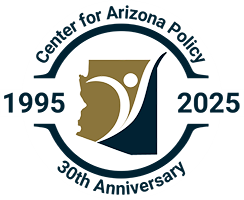Statement by Center for Arizona Policy President Cathi Herrod
“Creative professionals, like Masterpiece Cakeshop owner Jack Phillips, rightly serve all people; however, they should not be compelled to communicate all messages or celebrate all events,” stated CAP Legislative Counsel W. Michael Clark in announcing Center for Arizona Policy’s (“CAP”) filing of a brief with the United States Supreme Court today.
CAP’s friends-of-the-court brief in Masterpiece Cakeshop vs. Colorado Civil Rights Commission was filed alongside International Christian Photographers in support of Masterpiece Cakeshop and its owner, Jack Phillips (“Phillips”).
Clark further stated that “creative professionals, like Phillips, should be free to live according to their sincerely held religious beliefs, and not be compelled by the government to create art that violates their conscience.”
The brief argues the State of Colorado infringed upon Phillips’s constitutional right to free speech by compelling him to create art that violates his conscience. A custom wedding cake, like professional wedding photography, is artistic expression and is therefore protected by the First Amendment.
Neither the State’s interest in combating discrimination nor the fact that the custom wedding cake would be commissioned is a sufficient justification for the State to compel Phillips to speak a message his conscience finds objectionable. Moreover, the State’s reasoning would curtail the free speech rights of many others in the wedding industry like photographers, videographers, florists, website designers, singers and DJs, calligraphers, and painters. For these reasons, among others included in the brief, we asked the Supreme Court to reverse the Colorado Court of Appeals. To read the brief, click here.
In 2013, the Colorado Civil Rights Commission ruled that Phillips violated Colorado’s public accommodation law when he, because of his religious beliefs, declined to create a custom wedding cake in celebration of a same-sex wedding. In 2015, the Colorado Court of Appeals upheld the ruling and found that the law did not violate Phillips’s free speech or free exercise of religion rights under the First Amendment. On July 26, 2017, the U.S. Supreme Court granted review of the case. The oral argument before the Supreme Court will likely take place in the Fall of 2017. For more details on the case, see Alliance Defending Freedom’s overview.

